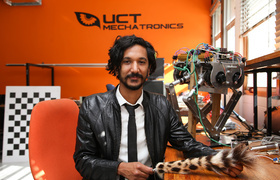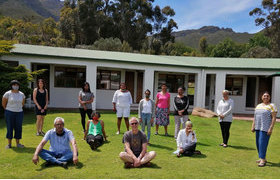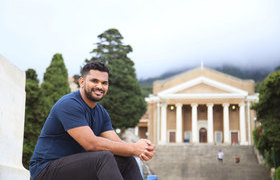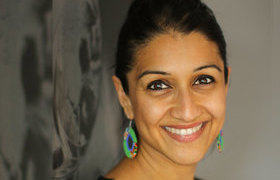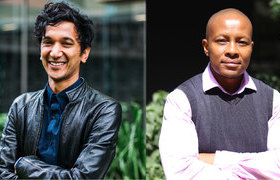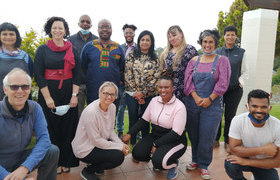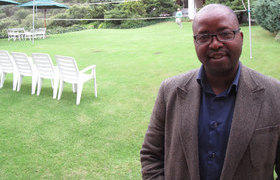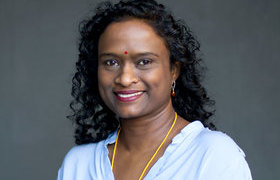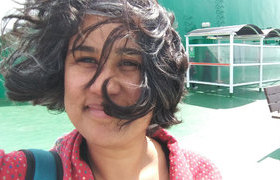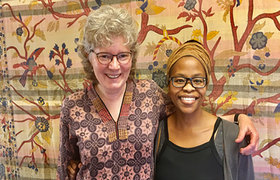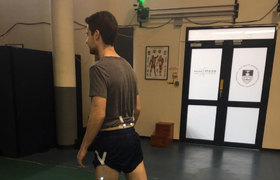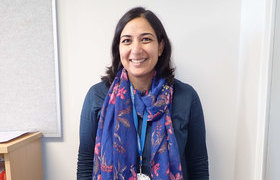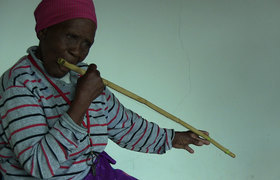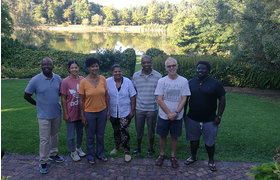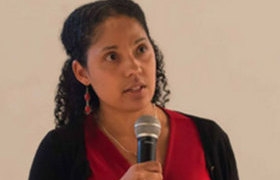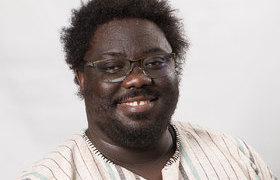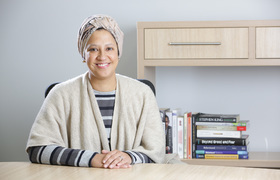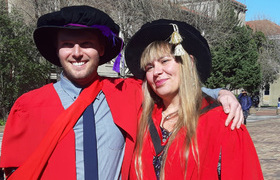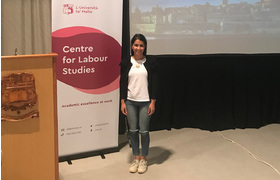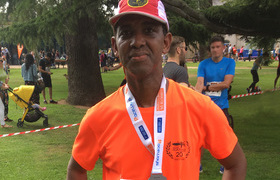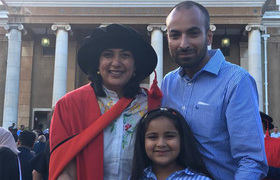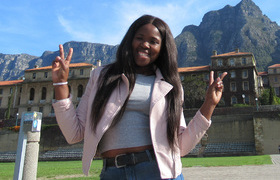Is it all about the numbers? – Freedom Gumedze heads the Department of Statistical Sciences
04 November 2021 | Story Robert Morrell. Photo Supplied. Read time 5 min.
Freedom Gumedze became the head of the Department of Statistical Sciences in the Faculty of Science in January 2021. This marks a long, long journey which began in 1996 when he came to UCT as a postgraduate student.
Freedom comes from Eswatini where he grew up with his aunt and then, later, her daughter in a rural area outside the small town of Piggs Peak. Having no children of her own and worrying about Freedom’s prospects, his aunt sent Freedom to live with her daughter. At age 7, Freedom found himself in a new household with new siblings and a chance to attend school.
St Benedict’s Primary school was where Freedom began his education. His cousin was the headmistress at the school and this is what gave Freedom his opportunity. He seized it with both hands and at the conclusion of his primary years he was the only one to secure a merit pass. This paved the way for entrance to Mhlatane High School. Here his interest was in maths and chemistry though his preoccupation was university and eventually finding a good job.
Studying hard and showing aptitude, Freedom succeeded in getting admitted to the University of Swaziland at the Kwaluseni campus outside Manzini. Still with an eye on a job, he chose statistics and demography as his majors and this opened doors to his first job with the Swaziland Government’s Central Statistics Office.
One of the perks of getting a job in government was that the World Bank awarded him a scholarship to further his studies and it was this that took Freedom to UCT in 1996. He’s been here ever since!
“My challenge was not having a role model to look up to so I had to pull myself up by my own bootstraps.”
Becoming a recognised researcher
“One needs supporters, champions, people who believe in you”, says Freedom. He identifies Tim Dunne as one of these influential people. Tim was professor of statistics and head of the department at UCT and died tragically in a car accident in 2016. Tim believed in Freedom from the outset, gave him opportunities, looked out for him. “He introduced me to the process of reviewing for journals,” remembers Freedom. “He passed on an invitation and this is how I began to learn about the processes of academic publishing.” It was also Tim who gave Freedom his first opportunity to experience UCT management structures. Tim sent Freedom to a three day Head of Department workshop at Bremner as his representative.
Bongani Mayosi was another major influence in Freedom’s academic life. “Bongani identified me as somebody he could work with, wanted to work with.” Freedom began working on biostatistics with Bongani’s team of researchers and published prodigiously as a result. Bongani demonstrated his loyalty and friendship at every turn, even travelling at Freedom’s invitation, all the way from Cape Town to attend a traditional wedding in Swaziland. He dropped everything and took his family with him.
Freedom explained that statisticians are often regarded as academic service providers. They work with teams of researchers and crunch the numbers. You’ll find their names hidden in the middle of the author line. He says that to get ahead, one needs to be a partner at the start of a research project so that one can shape the project and participate in its evolution. This involves taking responsibility, sharing leadership roles and taking the opportunity to develop statistical method. This latter feature is critical for statisticians as it signals their maturation as scholars and distinguishes them from being simple service providers.
Reflecting on the tragedy that both his mentors have died, Freedom says: “They carved a path for me now I have to carve a path for others”.
The marathon of academia
Freedom, thinking about academic life, reflects his practice as a marathon runner. He has run about half a century of marathons including over ten Two Oceans ultramarathons and two Comrades marathons.
“Running teaches you discipline and resilience”, he says. “You realize that things don’t come easy, you have to train and you have to make sacrifices. You have to endure discomfort and expect adversity.”
He reflects on a career which included graduating with a PhD in 2009, getting a National Research Foundation (NRF) rating in 2013, winning a prestigious Newton Advanced Fellowship from the Royal Society in 2016 and being promoted to associate professor in 2019.
He regards his progress with modesty. Freedom is a man of numbers, not of words. He identifies things that helped him along this path, including the Next Generation Professoriate (NGP) biannual milestone meetings with Robert Morrell. “He took a personal interest in me as a person and the NGP programme provided me with a space to reflect and take stock.” The milestone meetings “helped me to chart my course and make sure that I didn’t go off track”. Freedom also notes the importance of being able to talk to somebody who wasn’t a line manager and in his immediate work sphere. “Its more relaxed”, he says with a smile.
Freedom describes statistics as about identifying patterns and quantifying uncertainty in order to make informed decisions. His statistical skills contributed to a 2018 study of UCT’s promotion trends which showed that the system was fair and that there was no discrimination on grounds of either race or gender. But Freedom acknowledges that life as an academic isn’t just about numbers, it is about choices and having the support and confidence of colleagues and friends. And it is about contributing to the academic project, undertaking community service and ensuring that university processes and structures function effectively and fairly.
 This work is licensed under a Creative Commons Attribution-NoDerivatives 4.0 International License.
This work is licensed under a Creative Commons Attribution-NoDerivatives 4.0 International License.
Please view the republishing articles page for more information.
Next Generation Professoriate (NGP)
The Next Generation Professoriate (NGP) is a mid-career academic staff development and support programme. Funded by the vice-chancellor’s Strategic Funds, the NGP addresses demographic inequalities in the academic hierarchy. The goal is to help members become associate and full professors.
The NGP was officially launched in September 2015. By the end of 2018, four of its members had been promoted to full professor and a further 14 had reached the rank of associate professor.
The programme is led by Dr Robert Morrell, who has over 35 years of academic experience in South African universities. He has a B1-rating from the the National Research Foundation (NRF) and is an elected member of the Academy of Sciences in South Africa.
Newsletters
In the news
